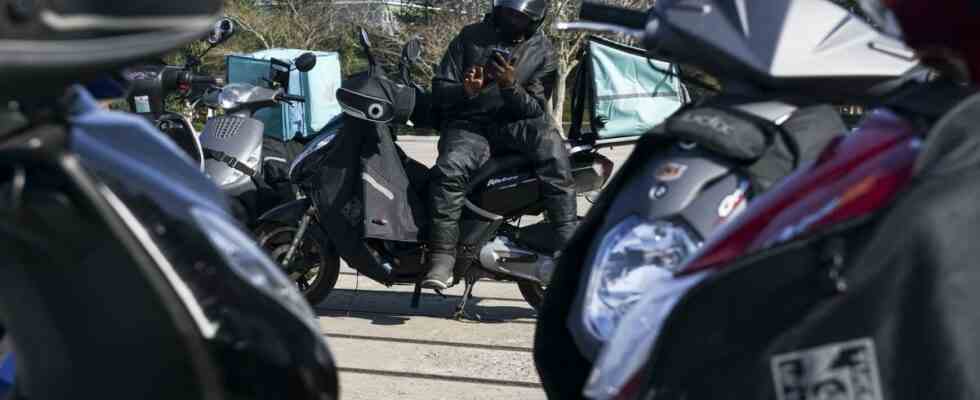Friday, August 19, a dozen mayors of major cities in France, including Pierre Hurmic, mayor of Bordeaux, signed a platform to encourage the government to take measures to regulate the establishment of dark stores and dark kitchens. The first are Quick Commerce operators, without storefronts, which play the role of warehouses to deliver groceries to customers in the city center in 10 to 15 minutes.
The second are kitchen laboratories exclusively dedicated to home delivery. These ghost businesses have taken advantage of the health crisis to storm the city centers of large cities. In Bordeaux, where the phenomenon is still contained, it is estimated that around ten brands are present, but it is difficult to count them because they are set up without authorization from the city, on areas of less than 500 m2.
Nuisances for local residents
“Settlements have been carried out in the streets Pelleport, Prunier, on the place des Capucins, the course of Albret and there are very big noise pollution, reports Sandrine Jacotot, the assistant in charge of trade at the city of Bordeaux. Large delivery trucks run from 7 a.m. to midnight. “These ghost businesses that dream of mini-Amazon (Gorillas, Foudie, Frichti etc.) do not bother to know if the installation of their activity sticks with the PLU (local urban plan) because they are far too busy “taking places” points out Yvan Otschapovski, technical trade advisor at the Bordeaux CCI.
He recalls that these are mainly “unicorns who benefit from significant fundraising” and who can afford to “count after”. Difficult for the city alone to respond given the length of the legal challenge procedures. “They know they will be quiet for at least two years,” sighs the trade assistant, who nevertheless remains combative.
A threat to independent businesses?
The various operators would engage in “a fratricidal war”, according to her, at the end of which only some will win the market. “For us, it doesn’t matter if the model is viable or not,” comments Sandrine Jacotot. What matters to us is what will be the price to pay in the face of this competition, in an already complicated period for independent merchants in Bordeaux. »
Barely out of the health crisis, these businesses, some of which are being digitized, find themselves taken aback. And for its part, the city finds itself a spectator of a last-mile intercity logistics organization that it should be piloting. As guarantor of the balance of supply, in a city which has 7,800 shops, including around 1,300 restaurants, the municipality is concerned about the possible damage to small stores. “It is obvious that adding merchants who form an alliance with large distributors brings competition to small grocers”, points out Sandrine Jacotot.
For Yvan Otschapovski, this growth of dark stores, whose opening curve is no longer exponential, must be put into perspective: “This represents 120 million in turnover in France and across the country, it’s nothing at all . “If we must remain vigilant concerning these warehouses closed to customers who can contribute to the desertification of city centers, he also believes that “consumers do not all adhere to this system whose image is not necessarily very positive. “.
Restaurant owners are up against dark kitchens
At the Galerie Tatry, a Bordeaux commercial space in the city center, Deliveroo recently opened ten kitchens for rent, to supply its delivery service. By saving in particular on room staff, it offers a cheaper offer that competes with traditional establishments. Foudie, a Toulouse company, announced its establishment in Bordeaux on August 17th. Gorillas, the first company to set up in Bordeaux, has not responded, at the time of writing this article, to requests from 20 minutes.
“We are going to desert the cities of beautiful breweries, beautiful restaurants, so it’s a phenomenon [les dark kitchens] that must be slowed down, warns Franck Chaumes, president of UMIH 33 (Union of hotel trades and industries). Public authorities must imperatively do so because it prevents employment. These ghost kitchens also escape the drastic controls of the hygiene services and raise questions about their social policy and their tax obligations.
For Yvan Otschapovski, restaurateurs must seize this opportunity to “get in working order to make home delivery”. And on this logistical issue, we must not confine ourselves to looking at the last mile but optimize the entire supply chain to really improve our carbon footprint. “It’s good if you deliver by electric bike, but how do you transport your warehouses? he says. Each medal has its reverse side.

